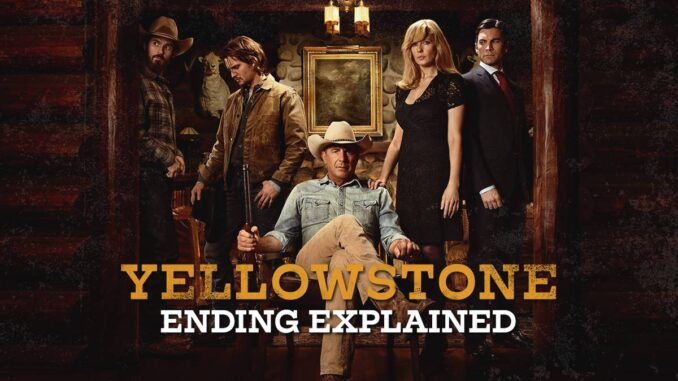
The very ground beneath the sprawling Yellowstone ranch trembles with an unspoken question, a tremor that resonates far beyond the screen into the fervent hearts of its millions of viewers. Is John Dutton coming back? The query, heavy with both hope and dread, hangs over the iconic landscape like a gathering storm, threatening to rewrite the very narrative of television’s most compelling modern western. For an illustrative essay, the question isn’t merely about an actor’s contract; it’s about the soul of a series, the legacy of a character, and the intricate dance between art, commerce, and audience devotion.
John Dutton, as portrayed by Kevin Costner, is not simply a character; he is the granite foundation, the gnarled oak, the immovable object against a relentlessly changing world. He is the personification of the land, rugged and unyielding, burdened by its history and fiercely protective of its future. His presence anchors the show, providing the moral (or amoral) compass around which the swirling ambitions and betrayals of his children, his enemies, and the world itself revolve. To imagine Yellowstone without John Dutton is akin to picturing the ranch without its mountains, its cattle, or its unforgiving, breathtaking beauty. He is the patriarch, the king on his modern-day throne, and the dramatic tension of the series stems from his constant fight to hold onto that throne and the land it represents.
The whispers, however, have grown into a gale-force wind. Whispers of scheduling conflicts, creative disagreements, and the cold arithmetic of contracts have become a discordant hum beneath the soaring scores and sweeping vistas of the show. Kevin Costner, himself a modern icon of the Western genre, finds himself embroiled in a very public standoff with the very creation he helped elevate to stratospheric success. The details are murky, a classic Hollywood he-said-she-said played out across industry headlines, but the impact is crystal clear: the future of John Dutton, and by extension, the very identity of Yellowstone, is hanging precariously in the balance.
To illustrate the void his absence would create, consider the narrative implications. How does a story, so deeply rooted in the struggle of a single, powerful man to preserve his ancestral land and family, simply continue without him? It would be like a mighty river suddenly rerouted, leaving its original bed dry and barren, struggling to find a new course. The other characters, as strong and compelling as they are – Beth’s fiery loyalty, Rip’s stoic devotion, Kayce’s conflicted conscience – derive much of their meaning and motivation from their relationship to John. He is the sun around which their orbits are defined. Without him, would their trajectories scatter, losing their gravitational pull? Could the show truly provide a satisfying conclusion to its epic saga if its central figure is missing, perhaps merely mentioned in past tense or dispatched off-screen with an unceremonious whisper? It would be a phantom limb for the audience, a persistent ache for a presence that should be there but isn’t.
For the loyal legions who have ridden shotgun through every triumph and tragedy, the prospect of an ending without its central star feels like a betrayal of the journey. They have invested years, emotions, and countless hours in a narrative built around John Dutton’s unwavering, often ruthless, determination. To deny them a proper resolution, a final act where the patriarch either triumphs in his impossible fight or finally succumbs to the weight of his world, would leave an indelible scar on the show’s legacy. It would transform a potential masterpiece into a poignant “what if,” a testament to the fragile line between artistic vision and logistical reality.
So, is John Dutton coming back? As the final chapters of Yellowstone are poised to unfold, the answer remains shrouded in a fog as thick as a Montana morning. It is a question that speaks not only to the fate of a beloved character but to the very soul of the show itself. Will Kevin Costner, the legendary actor, return to inhabit the skin of the legendary rancher one last time, allowing John Dutton to guide his family and his land to their ultimate destiny? Or will the curtain fall on the Dutton saga with its central figure tragically absent, leaving behind a vast, beautiful, but ultimately incomplete narrative? The fate of the Yellowstone ranch, both on screen and in the hearts of its viewers, awaits the answer with bated breath, knowing that either way, the landscape will never quite be the same.
